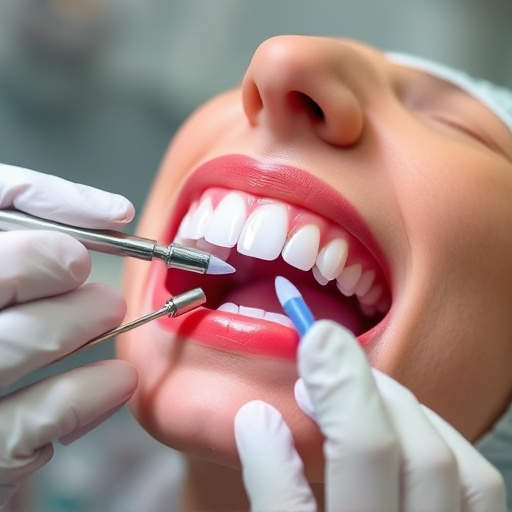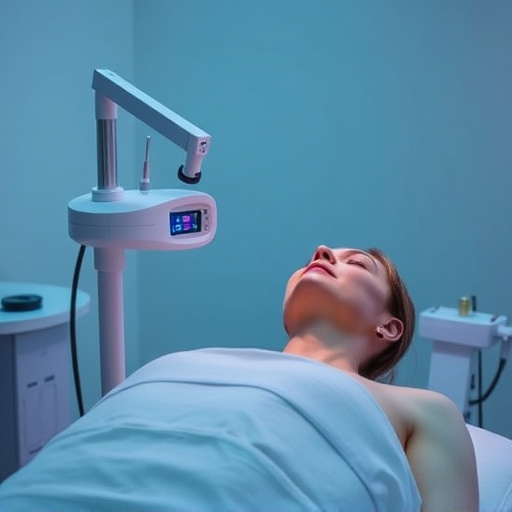By 2025, healthcare will pivot towards personalized treatment plans leveraging advanced tech and data analytics for precise, tailored patient care, as seen in dermatology's skin rejuvenation practices, enhancing outcomes and satisfaction. This approach revolutionizes treatments, fostering trust and adherence, with significant benefits expected across various health concerns.
In 2025, personalized treatment plans are trending as healthcare shifts towards individualized care. Unlocking the potential of each patient’s unique needs, this approach leverages technology and data-driven insights to create tailored interventions. From enhanced patient outcomes to increased satisfaction, the benefits extend far beyond fleeting trends. This article explores how technology is revolutionizing healthcare, focusing on data analysis and its role in crafting effective, personalized treatment plans.
- Unlocking Individualized Healthcare: The Rise of Personalization
- Technology's Role: Data-Driven and Tailored Interventions
- Benefits Beyond Trends: Enhanced Patient Outcomes and Satisfaction
Unlocking Individualized Healthcare: The Rise of Personalization

In the evolving landscape of healthcare, the year 2025 marks a significant shift towards individualized care with the rise of personalized treatment plans. This trend is driven by a growing understanding that every patient is unique, with varying needs and responses to treatments. Unlocking the potential of each individual involves a comprehensive approach that considers their genetic makeup, lifestyle, and overall health status. By tailoring healthcare solutions, professionals can deliver more effective and efficient results, particularly in fields like dermatology where skin rejuvenation practices are increasingly personalized.
The integration of advanced technologies plays a pivotal role in this transformation. Innovations in data analytics enable healthcare providers to access vast amounts of information, allowing them to create precise treatment regimens. From professional skincare routines to aesthetic treatments, personalization ensures that each patient receives the most suitable care for their specific concerns, enhancing overall satisfaction and outcomes.
Technology's Role: Data-Driven and Tailored Interventions

The year 2025 is poised to witness a significant shift in healthcare approaches, with personalized treatment plans taking center stage. Technology has become an indispensable ally in this trend, enabling more precise and tailored interventions. Advanced data analytics allows healthcare professionals to gain unprecedented insights into individual patient profiles, behaviors, and responses to previous treatments. This wealth of information facilitates the creation of customized strategies that address specific health needs and preferences.
By leveraging data-driven insights, technologies like AI algorithms can predict outcomes, recommend personalized products (such as hydrating facials or laser hair removal for targeted concerns), and monitor progress more effectively. This approach ensures that each patient receives a treatment plan designed to deliver optimal results while minimizing potential side effects. As a result, personalized treatment plans are expected to revolutionize various sectors, from dermatology (wrinkle reduction) to wellness management, ultimately enhancing overall well-being.
Benefits Beyond Trends: Enhanced Patient Outcomes and Satisfaction

Personalized treatment plans are not just a passing trend but a crucial shift in the healthcare industry, especially in dermatology and wellness practices. This approach offers significant advantages for both patients and practitioners. By tailoring treatments to individual needs, skin types, and concerns, professionals can deliver enhanced patient outcomes and satisfaction rates.
In 2025, the focus on personalized care means that anti-aging treatments, pore refinement, and hydrating facials, among others, are being customized to suit unique patient profiles. This ensures that each treatment is not just effective but also minimizes potential side effects. Patients benefit from more targeted and efficient skincare routines, leading to improved overall skin health and appearance. Such personalized attention fosters trust between patients and healthcare providers, ultimately encouraging better adherence to treatment protocols.
Personalized treatment plans are no longer a futuristic concept but an established trend in 2025, driven by advancements in technology and a growing emphasis on individual patient needs. By harnessing data-driven insights, healthcare providers can offer tailored interventions that not only enhance patient outcomes but also significantly boost satisfaction levels. This shift towards personalized care promises to revolutionize the industry, ensuring that each patient receives a unique and effective treatment approach.














